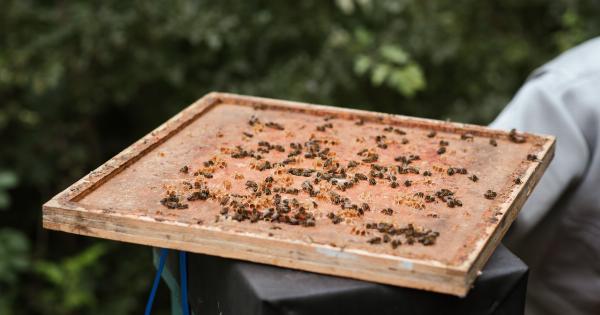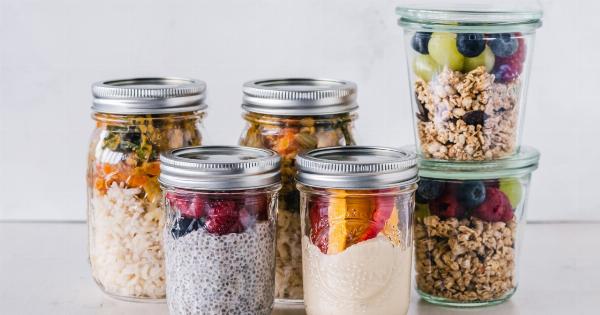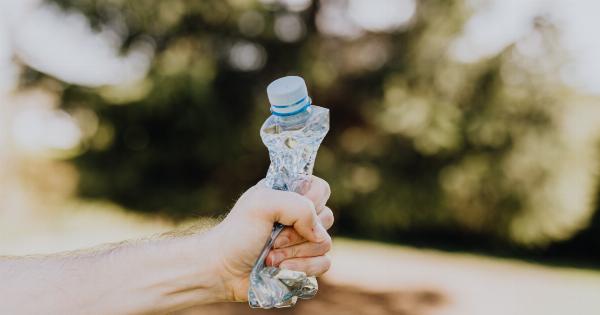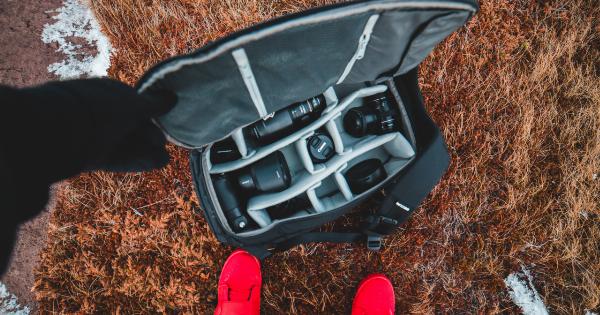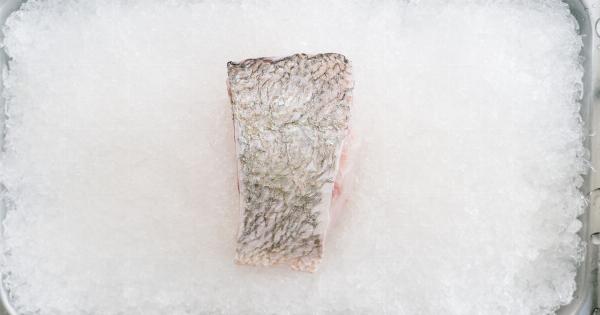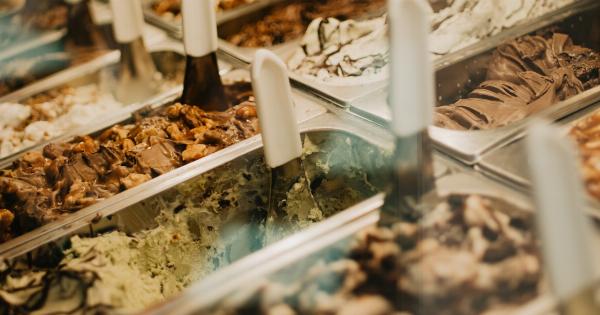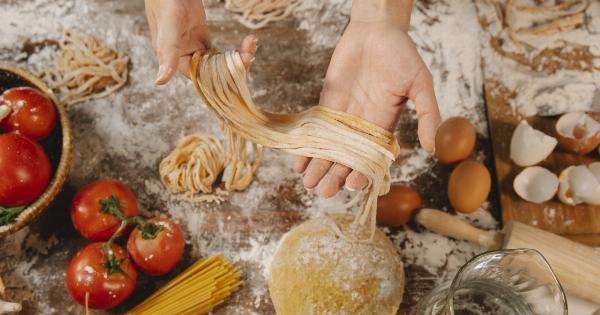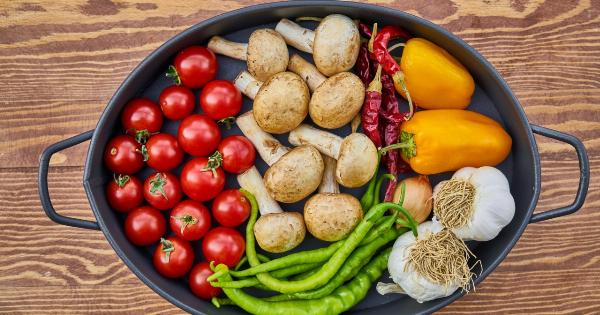Food spoilage is a common problem that can cause waste of resources, money, and even pose health risks. However, with proper knowledge and techniques, you can prevent food spoilage and extend the shelf life of your food items.
In this comprehensive guide, we will explore various methods and tips to help you prevent food spoilage effectively.
Understanding Food Spoilage
Food spoilage refers to the process of deterioration in the quality, taste, and safety of food items. It occurs due to several factors, including biological, chemical, and physical processes.
These processes can be influenced by temperature, humidity, air, light, microbial growth, and other external factors. Understanding the causes of food spoilage is crucial for preventing it.
Proper Food Storage
One of the key factors in preventing food spoilage is proper storage. Here are some essential guidelines to follow:.
- Refrigeration: Refrigerate perishable foods such as meat, poultry, dairy products, and eggs promptly. Keep the refrigerator temperature below 40°F (4°C) to slow down bacterial growth.
- Freezing: Freezing is an excellent way to extend the shelf life of many food items. Make sure to package the food properly to prevent freezer burn and maintain quality.
- Pantry Storage: Some foods can be stored at room temperature, provided they are kept in a cool, dry place away from direct sunlight. Examples include canned goods, dry pasta, and unopened jars.
- Proper Containers: Use airtight containers or resealable bags to store food. This helps in preventing moisture loss, exposure to air, and cross-contamination.
Effective Food Packaging
The right packaging can significantly contribute to preventing food spoilage. Consider the following tips:.
- Vacuum Sealing: Vacuum sealers remove air from the packaging, which reduces the chances of microbial growth and oxidation.
- Use Food Wraps: Wrap food items tightly with plastic wraps or aluminum foil to protect them from moisture and air.
- Store in Opaque Containers: Light can cause the breakdown of certain nutrients and accelerate spoilage. Therefore, store light-sensitive foods in opaque containers.
- Inspect Packaging: Always check for damaged or bulging packaging before consuming or storing any food item. Damaged packaging can indicate spoilage or the presence of harmful microorganisms.
Proper Handling and Preparation
The way you handle and prepare food can also impact its shelf life and safety. Follow these guidelines:.
- Wash Hands: Always wash your hands thoroughly with soap and water before handling food. Proper hand hygiene prevents the transfer of bacteria and other contaminants.
- Separate Raw and Cooked Foods: Keep raw and cooked foods separate to prevent cross-contamination. Use separate cutting boards and utensils for raw meat, poultry, and vegetables.
- Cooking Temperatures: Cook food items, especially meat and poultry, at the recommended temperatures to ensure they are safe to eat. Use a food thermometer to check the internal temperature.
- Leftovers: Store leftovers promptly in the refrigerator or freezer to prevent bacterial growth. Consume them within a few days or follow specific guidelines for each type of food.
Monitoring Shelf Life
Regularly monitoring the shelf life of your food can help you identify potential spoilage and prevent foodborne illnesses. Consider these practices:.
- Check Expiration Dates: Pay attention to expiration dates on food packaging and consume the products before they expire.
- First In, First Out (FIFO): When storing multiple items, use the FIFO method, which means using the oldest products first to avoid wastage.
- Smell and Visual Inspection: Trust your senses. If the food looks or smells off, discard it to be safe.
- Safe Refrigerator Temperatures: Regularly monitor and adjust your refrigerator temperature to ensure it stays below 40°F (4°C). Use a refrigerator thermometer for accuracy.
Preservation Techniques
In addition to proper storage and handling, various preservation techniques can help extend the shelf life of your food:.
- Canning: Canning is a method of preserving food in airtight containers using heat. It eliminates bacteria and other microorganisms, allowing the food to be stored safely for an extended period.
- Drying: Drying removes moisture from food, inhibiting the growth of bacteria, yeasts, and molds. It can be done through sun drying, air drying, or using a food dehydrator.
- Fermentation: Fermented foods undergo a controlled microbial growth process that preserves and enhances the flavor of the food.
- Pickling: Pickling involves preserving food in an acidic solution to prevent spoilage. It can be done using vinegar, saltwater brine, or citrus juices.
Proper Waste Disposal
Proper waste disposal is crucial for preventing the spread of pathogens and minimizing the chances of contamination:.
- Separate Trash Bins: Use separate trash bins for food waste and other household waste.
- Seal Food Waste: Dispose of food waste in a securely sealed bag or bin to avoid attracting pests and creating unpleasant odors.
- Composting: Consider composting organic food scraps instead of throwing them away. Composting allows you to repurpose food waste while reducing landfill waste.
Educating Yourself and Others
Continuously educate yourself and spread awareness about preventing food spoilage:.
- Stay Updated: Keep up with the latest food safety guidelines and recommendations from reputable sources, such as government health agencies and research institutions.
- Share Knowledge: Share the knowledge you acquire with family, friends, and community members to promote food safety practices.
- Teach Children: Educate children about the importance of proper food handling and hygiene from an early age.
Conclusion
Preventing food spoilage is essential for reducing waste, saving money, and maintaining food safety. By following proper storage, handling, and preservation techniques, you can significantly extend the shelf life of your food items.
Additionally, practicing proper waste disposal and educating yourself and others about food safety further contribute to preventing food spoilage. Implement these guidelines in your daily routine and enjoy fresh, healthy meals while minimizing food waste.





